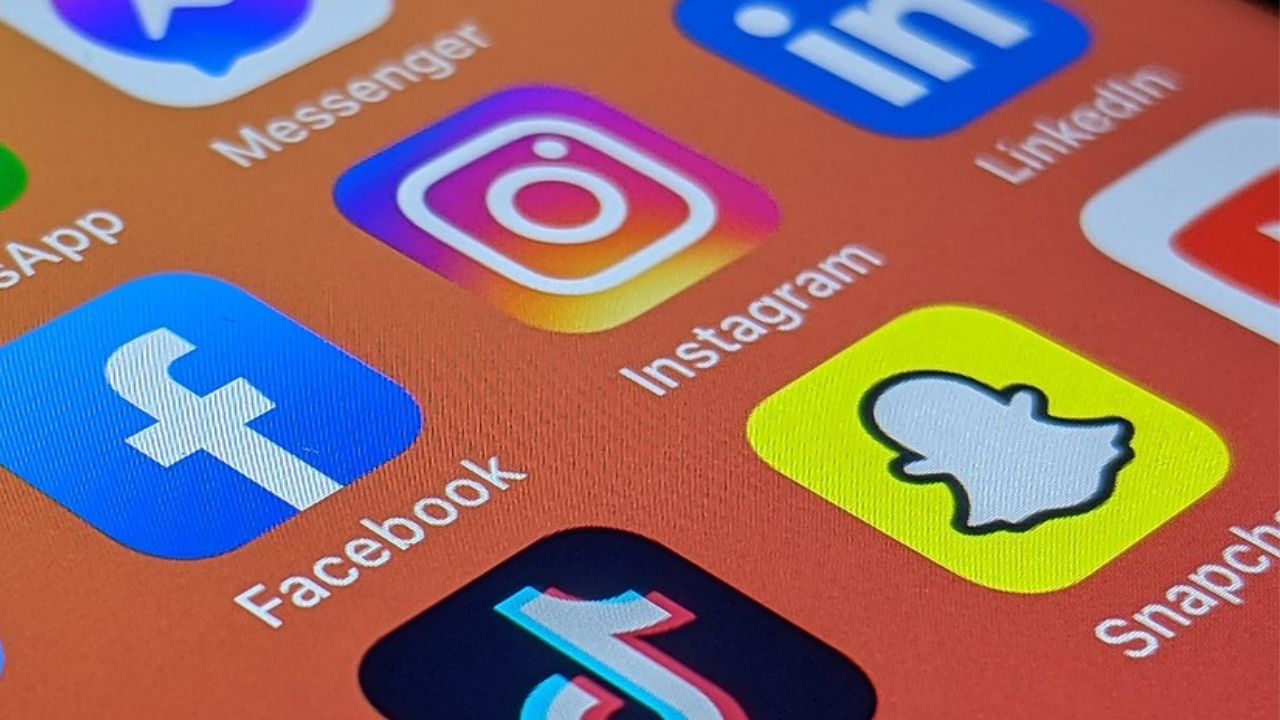Let’s talk about something that’s becoming a real headache these days – your online presence and how it can come back to bite you. A stark example of this occurred when 20 teachers from Great Valley Middle School in Malvern, Pa., fell victim to student impersonations on TikTok using information found online. Yikes. It’s time we face the music: sharing our lives online, especially on social media, is riskier than ever.
Social media platforms have become an integral part of our personal and professional lives. However, they also expose us to various risks that can have serious consequences. Sure, you can’t stop someone from trying to mess with your reputation, but you can make it a whole lot harder for them.
GET SECURITY ALERTS, EXPERT TIPS – SIGN UP FOR KURT’S NEWSLETTER – THE CYBERGUY REPORT HERE

How your online data can sabotage your reputation and safety
Having your online reputation damaged can hurt your chances of something as small as making friends in a new neighborhood, to something much more serious, like landing the job you’ve always dreamed of.
According to a Career Builder study, every 2 out of 3 hiring managers screen candidates’ social profiles before hiring. But it gets worse—other statistics reveal that over half of recruiters rejected a candidate because of what they found on their social media. However, the risks of having your personal data online don’t stop there. The list includes:
- Identity theft and fraud
- Stalking and harassment
- Doxxing and swatting
- Scams and phishing attempts
- Data breaches
These issues are more common than you might think. The Bureau of Justice Statistics (BJS) estimates that around 10% of Americans were victims of identity theft within the year prior to their research. For 1 in 5, it has happened at some point in their lifetime. A recent data breach at National Public Data—a data broker—might have exposed the Social Security Numbers of every American. BJS further reports that 3.4 million Americans were stalked in one year—69% of those cases involved the use of technology. And that only includes reported incidents. The FBI confirms that cyberstalking is on the rise. Being anonymous online isn’t just about comfort—it’s about safety. Fortunately, you can take steps to protect your personal information on the web.

HACKED, SCAMMED, EXPOSED: WHY YOU’RE ONE STEP AWAY FROM DISASTER ONLINE
Erase your digital footprint and protect your privacy
You’ve probably heard the saying, “Once you put something on the internet, it’s there forever.” But that’s not entirely true. Disappearing from the internet is possible, though it’s not easy—especially if you try to do it on your own. Fortunately, some professional services can help. These services not only assist in deleting your existing data but also help prevent new information from resurfacing online. Here’s what you can do to remove your digital footprint from the web.
1) Remove yourself from people search sites
If you want to take on the task yourself, you’ll need to be prepared to put in some work. Most of your data is stored on what’s called people search sites. These are large databases of personal information—some containing over 300 million individual records.
People search sites publish highly private information, starting with your contact details and extending to your family, colleagues, and even your sexual orientation. That data is often used by scammers. And the less your information is out there, the more difficult it is for bad actors to exploit you. The good news is that you can request the removal of your personal data from these sites. Each site has its own process, but they generally follow a similar pattern:
- Visit the people search site, e.g., Whitepages.
- Look for an opt-out form (often found in the site’s footer).
- Search for your personal information and select your profile.
- Confirm your identity and wait for the data to be removed.
2) Invest in professional data removal services
It’s best not to leave anything to chance. While opting out from data brokers yourself is technically possible, the sheer number of brokers makes this a monumental task.
Moreover, protecting your privacy online isn’t a one-time effort. It requires continuous monitoring and frequent opt-out requests, as data brokers are constantly collecting personal information. Even if you successfully remove your profile, it could reappear later.
A service like Incogni can help you remove all this personal information from the internet. It has a very clean interface and will scan websites for your information and remove it and keep it removed.
Special for CyberGuy Readers (60% off): Incogni offers A 30-day money-back guarantee and then charges a special CyberGuy discount only through the links in this article of $5.99/month for one person (billed annually) or $13.19/month for your family (up to 4 people) on their annual plan and get a fully automated data removal service, including recurring removal from 190+ data brokers. You can add up to 3 emails, 3 home addresses and 3 phone numbers (U.S. citizens only) and have them removed from data-broker databases. I recommend the family plan because it works out to only $4.12 per person per month for year-round coverage. It’s an excellent service, and I highly recommend at least trying it out to see what it’s all about.
Get Incogni
PHARMA GIANT’S DATA BREACH EXPOSES PATIENTS’ SENSITIVE INFORMATION
3) Remove yourself from Google search results
However, to fully protect yourself from cyberstalking, you also need to address the images associated with your online identity. If someone wants to hurt your reputation, knowing your name and home address might only be part of the puzzle. The other piece could be finding your images. Using personal details like your childhood home address, school, or past employers, stalkers can unearth potentially damaging content and use it to harm your online reputation. But images aren’t the only thing you should address. If you want to leave no trace on Google, make sure to:
- Remove your personal information and images from Google.
- Modify social media settings to be more private and delete old accounts (they will appear in search results).
- Delete your trail of website comments.
- Blur your house on Google and Apple Maps.
Unfortunately, you can’t remove content from Google search results directly. You can submit a removal request, but Google must approve it first. For more details, refer to my previous post on how to remove yourself from Google searches. If your request is denied, you’ll need to contact the site owner and ask them to take it down. However, your options here are limited. Once bad actors get hold of your data, it’s difficult to regain control. That’s why it’s so important to stop stalkers from accessing your information in the first place.
Additional tips to safeguard your online reputation
1) Be cautious about sharing personal information on social media. Adjust privacy settings to limit what’s publicly visible.
2) Monitor your digital footprint regularly. Set up Google Alerts for your name to stay informed about new mentions online.
3) Strengthen your passwords and enable two-factor authentication on all accounts to prevent unauthorized access. Also, consider using a password manager to generate and store complex passwords.
4) Exercise caution with links and attachments. Don’t click on suspicious links in social media posts, emails, or messages, as they may lead to phishing sites or malware downloads. Verify the source before opening any attachments, especially from unknown senders. When in doubt, contact the purported sender through a separate, trusted channel to confirm the legitimacy of the link or attachment. Additionally, use strong antivirus software and keep it updated to provide an extra layer of protection against potential threats.
The best way to safeguard yourself from malicious links that install malware, potentially accessing your private information, is to have antivirus software installed on all your devices. This protection can also alert you to phishing emails and ransomware scams, keeping your personal information and digital assets safe.
My top pick is TotalAV, and you can get a limited-time deal for CyberGuy readers: $19 your first year (80% off) for the TotalAV Antivirus Pro package.
Get my picks for the best 2024 antivirus protection winners for your Windows, Mac, Android & iOS devices.
Best Antivirus Protection 2024
TAKE BACK YOUR PRIVACY WITH THIS IPHONE SAFETY FEATURE
Kurt’s key takeaways
From fake TikTok profiles to data breaches, it seems like our online presence is constantly under siege. But here’s the thing: while we can’t stop every bad actor out there, we can definitely make their job a whole lot harder. It’s all about taking control of your digital footprint. Whether it’s scrubbing yourself from people search sites, investing in professional data removal services, or being more mindful of what we share online, there are steps we can take to protect ourselves. Remember, your online reputation isn’t just about social media likes – it can impact everything from job prospects to personal safety. So maybe it’s time we all took a good, hard look at our online presence and asked ourselves: is it really serving us, or is it leaving us vulnerable?
What role do you think social media platforms should play in protecting your privacy and preventing impersonation or harassment? Let us know in the comments below.
FOR MORE OF MY SECURITY ALERTS, SUBSCRIBE TO MY FREE CYBERGUY REPORT NEWSLETTER HERE
Copyright 2024 CyberGuy.com. All rights reserved. CyberGuy.com articles and content may contain affiliate links that earn a commission when purchases are made.




















 English (US) ·
English (US) ·